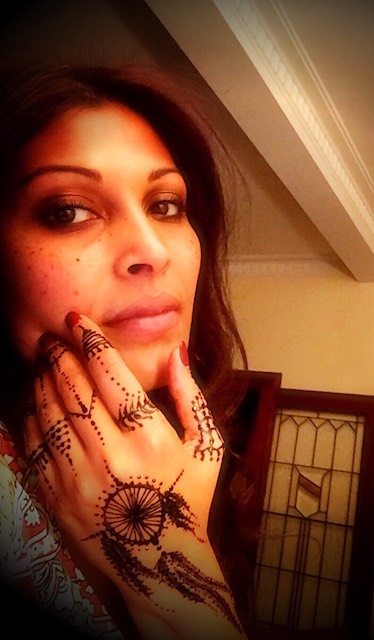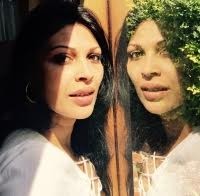
I am a self-confessed softie.
Trouble is, lately, I am noticing that I am more than just a casual softie. Watching myself become this gentle person scared the hell out of me for a while.
What comes to mind when you think of “softness?” Something that is pleasant to touch, tender, gentle, easy to mould and shape? This is what it brings to mind for me.
On the flip side, I also thought of “soft” as something that is easily smashed—fragile, breakable, and insecure. This used to be my summation of softness, both in general and when applied to people who I believed were “soft.”
I am deliberately choosing to use the word soft and not the word feminine (softness is just one of many feminine traits).
Being soft had several negative connotations for me. I believed that being soft meant that I was unsteady, unstable, easily broken or hurt by love, by life, by the world.
Most of my life I was a strong, competitive, ready-for-any-kind-of-challenge type of person. Other than tough life experiences, I often sought jobs, opportunities, and sometimes even relationships that were challenging. They gave me opportunities to demonstrate my strength and toughness.
In the last couple of years, when I started to explore the softer side of my nature, I would realise that this part of me felt gentle, tender, and good. However, moments later, I often experienced shades of fear and shame.
At age five, I watched my mother cry, beg, and plead for mercy at my father’s feet to let us back into the place we once called home. I watched her do this so many times in her life: To get my sister and I into a good school in the middle of a term. To get extensions for the loan on our home. To buy time to pay school fees and so many other things that were needed for our safety and well-being.
My mother is a warrior and to see her this vulnerable was the most painful sight for me. Her cries were sometimes met with kindness, but many times with coldness and rejection. The memory of walking home with her, feeling sadness and deep shame has stayed with me for a long time.
Seeing this brave woman rejected over and over again broke my heart into pieces. I taught myself to never soften, ask for help, beg, or plead—even if my life was at stake. I hardened my heart and built an impenetrable wall around it.
Today, after 30-odd years, I am soft.
It’s taken a lot of healing, a truckload of forgiveness, surrender, and consistent practice to get here. This softness has helped me become more patient, loving, kind, and forgiving.
Even so, I find myself wondering whether softness is a strength or a weakness.
It’s much too common to hear things like “he’s too soft” or “she’s too sweet” as a form of criticism, whether it is for a job, in a relationship, or in the context of life in general. The suggestion here is that a person who is soft is not capable, strong, or resilient enough for a job, for love, or for life.
I beg—rather strongly—to differ.
So often we liken capability, strength, courage, and resilience to physical masculine strength, and it is exactly this idea that we are projecting when we say a person is “too soft.”
It takes a lot of courage and restraint to demonstrate “softness” when we are faced with fear. It took a lot of courage on my mother’s part to drop down to her knees and beg for the safety of her two little girls. In fact, if it wasn’t for her courage and resilience in setting aside her pride and pleading with the nuns at St. Victor’s Primary school, I probably would have missed a couple of years at school and would not have had the opportunity for a good education.
And yet, even though I had witnessed such courage in my childhood, dropping to this level of vulnerability filled me with fear and shame as an adult. So much so that whenever I felt vulnerable, I either fought it or ran away.
Recently, when someone suggested that I was “soft,” I was deeply triggered. I felt defensive of my softness and, at the same time, I felt ashamed and wondered if I was being called weak.
I realised then that, inadvertently, I also mirrored the world’s view on softness being a trait of weakness rather than an act of surrender and peace.
In today’s time of fierce feminism, when women are rising to their power, we all too often make the same mistake as the patriarchal systems we fight. We surrender our most precious feminine strength—our softness and vulnerability—in exchange for toughness, physical strength, and masculinity.
Both have a place in making us the women of today. However, it is important to remember and honor our natural and biological capacity to be soft-natured and vulnerable first, before stepping into our warrior state.
My motto in any situation that calls for action is to approach it with my feminine strength first. If this fails, then I draw my sword.
Women of today, let us not throw out our gentle natures, labeling them as weakness, under the banner of feminism. This is precisely the lie we’ve been fed and shamed for, for centuries. Our strength, first and foremost, lies in our capacity to love, accept, submit, and surrender—it lies in our softness.
Nobody disputes our ability to be strong: to climb those mountains, overcome the odds, become a boxer, be a champion, to build those guns and abs. But, no matter how powerful—physically or otherwise—we become, let’s never, ever forget that our most precious super-power is our “softness.”
Remember what Mahatma Gandhi, who led an entire nation to freedom through his “soft” approach of peace and non-violence, once said:
“Strength does not come from physical capacity, it comes from indomitable will.”
~
Author: Deepthi Amin
Image: Derick Anies/ Unsplash; Author’s Own
Editor: Khara-Jade Warren

 Share on bsky
Share on bsky




Read 0 comments and reply